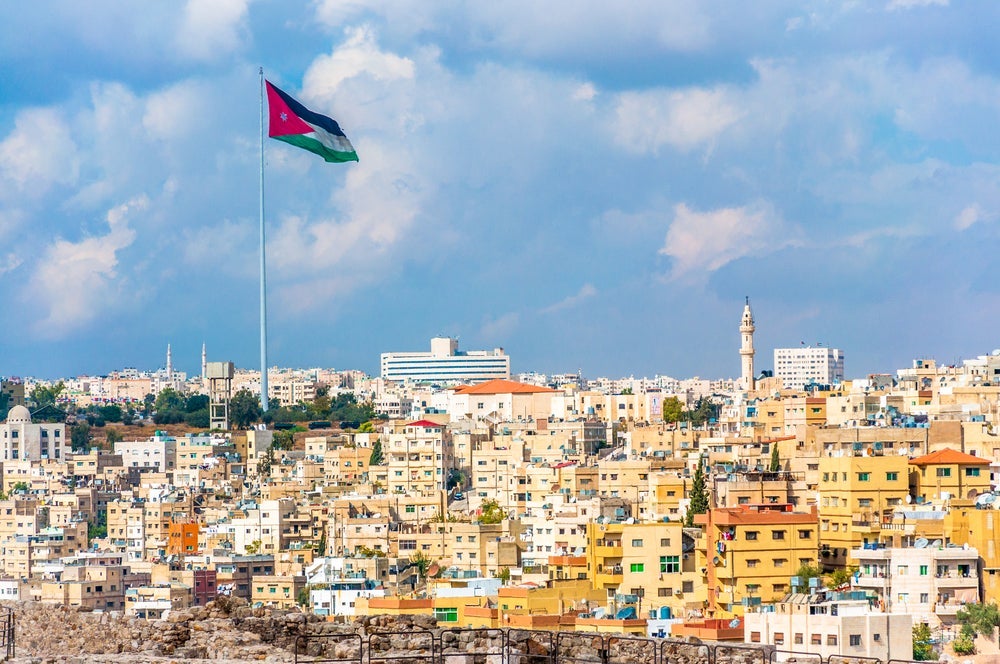
Jordan attracted $776m (Jd550.18m) in foreign direct investment (FDI) in the first six months of 2023, an increase of 20.9% compared with same period in 2022, according to a report by the Central Bank of Jordan.
The country attracted $383.8m of FDI during the second quarter of 2023 alone, the report said, adding that it equated to an 85.7% increase compared with the second quarter of 2022.

Access deeper industry intelligence
Experience unmatched clarity with a single platform that combines unique data, AI, and human expertise.
The growth in FDI was driven mainly by reinvested profits and newly registered investments with the Ministry of Industry, Trade and Supply, the report added.
Beth Morrissey, managing partner at Kleiman International Consultants, an emerging markets advisory, said that this growth in FDI can be attributed to Jordan’s new Investment Environment Law, passed in September 2022, which was designed to attract new funding, boost growth and create jobs.
“The Ministry of Investment also launched a website, Invest.Jo, which showcases priority sectors and specific investment opportunities,” she added. “The new law provides incentives and exemptions and mandates the use of tech to streamline the investment process. The e-services include registration applications, licensing, incentives as well as visas and investor cards. The new law is part of a broader reform programme being undertaken under the country’s IMF [International Monetary Fund] programme.”
FDI inflows are increasing in Jordan following a decline in previous years. The Middle Eastern country attracted $1.14bn in FDI in 2022, compared with $622m in 2021, according to the World Investment Report 2023 commissioned by UNCTAD.

US Tariffs are shifting - will you react or anticipate?
Don’t let policy changes catch you off guard. Stay proactive with real-time data and expert analysis.
By GlobalDataAlthough real gross domestic product (GDP) is set to grow by 2.7% in 2023, according to IMF forecasts, Jordan faces high levels debt and low growth, among other challenges.
“[Jordan’s economy] has been further strained the past decade by the estimated 1.3 million Syrian refugees – about 11% of Jordan’s population – on top of Covid-19 and higher commodity prices after the Russian invasion,” said Morrissey. “Under its IMF programme, the focus is on structural reforms, including fiscal reforms, focused on tax compliance.”
She added that Jordan’s debt-to-GDP is 110%, or 114% if debt owed by government to the Social Security Investment Fund is included. “The current account deficit topped 11% of GDP last year and is expected to narrow to a still-high 8% this year on an uptick in tourism earnings,” said Morrissey.







